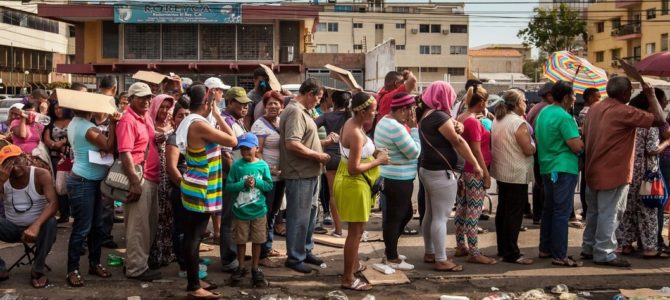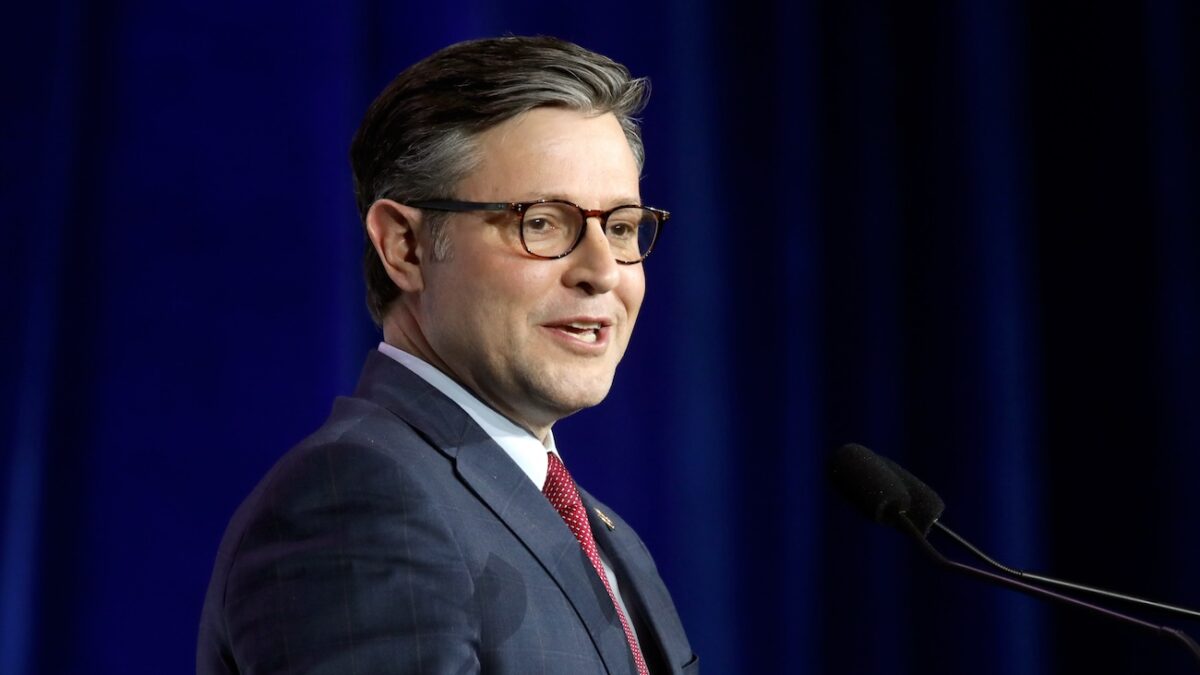Two Venezuealan asylum seekers are offering a cautionary tale to Americans getting a taste of what it’s like to live in a socialist state amid the Wuhan coronavirus pandemic.
Empty shelves, rationed food, high unemployment, shortages of medical supplies, and heavy government restrictions of civil liberties are giving Venezuela natives Andres Guiliarte, 25, and Jorge Galicia, 24, each a spell of deja vu.
“I closed my eyes and felt like I was in Venezuela again,” said Andres Guiliarte of a recent experience walking through a supermarket. Observing ravaged shelves and long lines for basic necessities limited to a few items per customer, Guiliarte said he has seen this before. “When I see this stuff, I remember Venezuela.”
Guiliarte, who lives in Washington D.C. as his paperwork processes, has been in the United States now since January of last year and officially filed for protection in May. Guiliarte told The Federalist that while he was used to shortages and economic unrest in his country, Americans should refrain from accepting the current situation as the new normal.
The experience in the United States, Guiliarte and Galicia say, is an ugly glimpse to an American future if the freest nation in the world steers down the dark path to socialism. As 42 states and the District of Columbia implement sweeping stay-at-home orders restricting citizen behavior while wrecking the economy, Galicia said he was all too familiar with the government power-grab by elected leaders.
“Pay really close attention to what government either local or federal government is doing right now because a lot of politicians might use this crisis to erode their civil liberties,” Galicia told The Federalist. “Those liberties might not ever come back.”
The mandatory shelter in place orders are no doubt being enforced. In Washington D.C., police are monitoring public spaces to ensure people remain compliant with social distancing government guidelines. In California, authorities issued 129 citations with fines up to $1,000 for alleged social distancing violations on Manhattan Beach. In Colorado, a 33-year-old man was locked in handcuffs in front of his 6-year-old daughter for playing softball in an empty park with his child.
These are temporary symptoms of a public health emergency, to be sure, and they are nowhere near as extreme as the conditions presented in modern Venezuela today, but as Guiliarte and Galicia argue, they provide a bleak preview of a dystopian future that each of them have lived.
“Don’t take for granted your liberties,” Guiliarte said. “This moment should be a moment to reflect on how things were before the crisis over COVID-19… We are at the mercy of whatever the government decides to do.”
Guiliarte and Galicia each spoke of a positive upbringing in their home country until things turned south when the nation’s disputed president Nicolas Maduro came to power in 2013 to complete what his predecessor Hugo Chavez had started for more than a decade prior.
Guiliarte recalled once having all the necessities of a first-world society such as readily available running water, reliable electricity, and high-speed internet suddenly diminish to being forced to travel miles with his mother to fetch water for the family. Electricity and internet access then began to fail while food became difficult to find.
“Prices started to go up and up everyday because of hyperinflation,“ Guiliarte said because the government was just giving out free money to people that eventually made money not worth anything.
Galicia had to go into hiding in 2017 after state police broke into his best friend’s house and made a surprise arrest following opposition demonstrations both of them participated in together.
“The next in line was me,” Galicia said, so he fled into off-the-grid isolation.
Since late last fall, both Galicia and Guiliarte have been spending their time in the United States touring college campuses to share their experiences and to warn about the perils of socialism. Speaking separately, with Guiliarte traveling from D.C. and Galicia based in Phoenix, both visited approximately 20 universities supported by The Fund for American Studies before the tour came to an abrupt halt due to the Wuhan virus pandemic.









